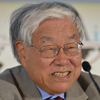
COVID-19 and its collateral damage continue to leave a trail of devastation around the world. Millions of businesses have closed, with many having no realistic prospect of reopening. Millions of people have lost their jobs. Millions are without health care. Some families are suffering from food insecurity for the first time. While the well-to-do can manage by using their savings, those who live from paycheck to paycheck, or hand to mouth, are suffering unfathomable hardships.
The pandemic also poses an almost impossible problem for traditional economic thinking. Most economists believe that the price mechanism will allocate resources efficiently, if not equitably, and that competition will maximize national income. But this assumes, crucially, that the activities of individuals or firms do not directly affect those of other agents, except through price signals in the market that indicate the scarcity of a product.
Economists refer to these effects as “externalities,” and divide them into external economies and diseconomies, depending on whether they are positive or negative. Such externalities prevent resources from being allocated efficiently.
Consider the decision whether or not to wear a face mask. In the absence of a pandemic, the demand for and supply of masks reflect the benefit and cost of producing them. Mask wearers will be protected from harmful substances in the air, but will incur costs: inconvenience, some discomfort, a possible loss of physical attractiveness, and of course the price of the mask. The market will equate the benefit and the cost, and scarce resources will be used in adequate amounts.
But this is not the case when externalities exist, as with COVID-19. Today, wearing a mask will deliver many benefits beyond those to the individual mask wearer. If the wearer is infected, the mask will prevent transmission of the coronavirus to friends, and further to friends of friends.
Here, the market fails, because the benefit of wearing a mask is far higher than what a single individual would estimate for themselves. National or municipal governments must therefore intervene and make it mandatory for all residents to wear one.
By requiring everyone to wear a mask, rather than leaving the decision to personal choice, a community can better protect itself from the substantial ravages and suffering caused by COVID-19. I live in Connecticut, where the state’s governor and his pandemic task force have responded appropriately and done a good job of containing the virus. The state has so far been one of the most successful in the United States in terms of infection and mortality rates. By contrast, governors of other, mostly southern, states refused to listen to scientists and health experts, and thus did not mandate mask wearing or enforce shelter-in-place orders and social distancing guidelines.
Similar externalities, or technological diseconomies, exist with respect to the environment. If a firm freely disposes of a large amount of sewage or air pollutants, then it is not paying the cost of the harm that its discharges or emissions will cause. The company is thus producing the substances in far greater quantities than a comparison of social cost and social benefit would deem adequate.
Yet, US President Donald Trump’s neglect and dismantling of environmental regulations encourages such behavior, because it enables many firms to avoid the cost of external diseconomies and impose additional hazards on society. Environmental deregulation assumes away the externalities the regulations were intended to address.
This reflects a broader mindset shared by Trump and leading Republicans such as Senate Majority Leader Mitch McConnell. It is reflected in a lack of compassion or empathy for others, particularly non-white people and other marginalized groups – many of them US citizens – who are suffering from poverty or illness. One can only assume that Trump and those like him are unable to regard others as entitled to comparable concern and respect as those in their wealthy, rarefied circles.
But we can turn for inspiration to Guido Calabresi, the US Circuit Court Judge and Professor Emeritus at Yale Law School who, along with the late Nobel laureate economist Ronald Coase, laid the foundations of the interdisciplinary “law and economics” approach. Calabresi highlighted the importance of social justice and the serious impact of sudden income fluctuations on people involved in accidents – very similar to what many are experiencing during the current pandemic.
In his book The Future of Law and Economics, Calabresi explores a new approach that incorporates externalities into consumption. In particular, he argues that a legal system which reflects people’s compassion toward one another may help to create a more equitable society.
Calabresi’s idea is especially welcome and enlightening at a time when too many leaders are neglecting the struggles and pain of their fellow citizens. Perhaps close study of Calabresi’s argument and propagation of his ideas among policymakers would contribute to fostering a much-needed sense of social solidarity in a world where the self-absorption of some is a threat to all.
Koichi Hamada, Professor Emeritus of Economics at Yale, was a special adviser to Japan’s prime minister. This content is © Project Syndicate, 2020, and is here with permission.
9 Comments
Social Justice is a term that I'm not so comfortable with.. (Plenty of violence has/can be committed in the name of "social justice". )
I'd prefer something like social compassion.
Anyway.... Great article, which seems like common sense, and I intend to find out more about the book.
Agree, good article, but more people are obviously much more interested in house prices...
Thank you. Great article, we need more like this. Will definitely check out that book.
In these somewhat uncertain times, those who have assets and can ride the storm will continue to do what they do.. collect more assets. There is an underlying theme in the world today trying to deny evolution - the strongest survive and the weak get recycled. That immutable fact has shaped humanity for 1000s of years and will continue to do so. Hamada's observations are interesting, but don't change core human nature. Anyone who denies that is delusional
Of course. You're only doing what's natural by trampling on the 'steerage' class, as you have called them - doing everyone a favor by weeding out the weak among us. Trump subscribes to the same philosophy. Can you guess who else?
"You're only doing what's natural by trampling on the 'steerage' class, as you have called them - doing everyone a favor by weeding out the weak among us." That's a bit of linguistic licence you're using there QD. I don't "trample steerage class" but by the same token I surely don't want to join them. I've worked hard to pay for my assets and will, if possible, add to them but I don't take advantage of someone else's misfortune.
Only issue with that argument is I know several physically weak people enquiring mass asset wealth and physically dominant types with zero. Would not have been the case once.
As you point out there are many versions and definitions of "strength". That's what makes society interesting. Some are physically weak but financially strong, some are physically strong but mentally weak, etc,etc. Strength or the lack of is generally denoted by the situation faced.
Strength in evolutionary terms pertains to ability to survive and pass on genes. Homo Sapiens have evolved very large brains with highly developed frontal lobes. Our brains require significantly more percentage energy relative to size, than our muscles, which strongly suggests our survival strength has been related to our brains, not physical strength.

We welcome your comments below. If you are not already registered, please register to comment
Remember we welcome robust, respectful and insightful debate. We don't welcome abusive or defamatory comments and will de-register those repeatedly making such comments. Our current comment policy is here.